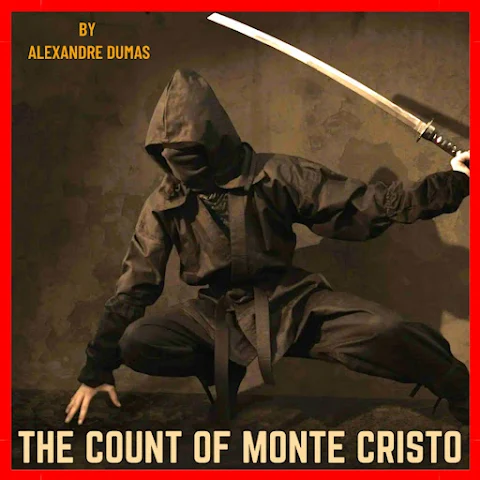You know how some characters in books just stick with you? That's Mercedes from "The Count of Monte Cristo" for me. Sure, everyone talks about Edmond Dantès and his incredible transformation into the Count, but let me tell you about Mercedes - she's got one of the most fascinating stories in the whole book. She's not just "the love interest" or "the one left behind" - she's this incredibly strong person who goes through so much and comes out the other side with this amazing wisdom about life. Trust me, once you hear her story, you'll understand why she's such a special character.
Listen to Mercedes' Story:
Listen on SpotifyThe Beginning: Young Love at Its Purest
Picture this: there's this young woman, Mercedes, living in this little Catalan fishing village. She's in love with Edmond Dantès, this super promising young sailor who's just got everything going for him. It's one of those love stories that makes you smile - you know, the kind where everything seems perfect and the future looks bright. Mercedes isn't just pretty (though she definitely is); she's got this spark about her, this intelligence that makes her special. And the way she loves Edmond? It's the real deal.
What's really beautiful about their relationship is how they just get each other. Mercedes doesn't just see Edmond as "oh, he's going to be a ship captain someday" - she sees him for who he really is. She believes in him completely, supports his dreams, and they have this amazing trust between them. It's like when you meet a couple and just know they're meant to be together. That's Mercedes and Edmond... at least at the start. But life, well, life had other plans for them.
When Everything Falls Apart
Here's where things get really tough. Imagine having your whole world turned upside down in a single day. That's what happens to Mercedes when Edmond gets arrested on completely false charges. But here's the thing about Mercedes - she doesn't just sit around crying (though honestly, who could blame her if she did?). She actually goes out there and tries to fight for him. In a time when women weren't supposed to make waves or challenge authority, she's out there demanding answers, trying to find out what happened to Edmond. Pretty brave, right?
Let me tell you something amazing about Mercedes - she actually goes up against these powerful people, these guys with all the political connections, trying to help Edmond. Think about how scary that must have been! This is a time when women didn't have much power at all, but there she is, refusing to back down. Sure, in the end she couldn't get him freed, but wow - the courage that took? That tells you everything you need to know about who Mercedes really is as a person.
The period following Edmond's imprisonment becomes a crucible that forges Mercedes' resilience. Faced with the presumed death of her beloved and societal pressures, she makes the difficult decision to marry Fernand Mondego, her former suitor. This choice is often misunderstood as a betrayal, but Dumas presents it with remarkable psychological complexity.
Mercedes' marriage to Fernand is not a simple act of opportunism but a nuanced survival strategy. In a society with extremely limited options for women, especially those without familial support or financial means, her marriage represents a pragmatic choice for survival. She does not romanticize this union but enters it with a clear-eyed understanding of her limited alternatives.
The Transformation: Wisdom and Moral Complexity
One of the most remarkable aspects of Mercedes' character is her ability to evolve. Unlike many characters who might become embittered by life's challenges, she develops a profound sense of moral understanding. When Edmond returns as the Count of Monte Cristo, Mercedes recognizes him immediately - not just through physical recognition, but through a deeper, almost spiritual understanding.
Her reaction to the Count's elaborate revenge plot is particularly noteworthy. While many might have sought vengeance alongside him, Mercedes represents a voice of moral complexity. She understands the pain that drives Edmond's actions but also recognizes the potential for further destruction. Her perspective introduces a crucial ethical dimension to the narrative, suggesting that true healing might require something more nuanced than pure revenge.
Mercedes' conversation with the Count reveals her remarkable emotional maturity. She acknowledges the profound betrayal she experienced but does not position herself solely as a victim. Instead, she demonstrates an ability to understand multiple perspectives, recognizing the humanity even in those who have caused her immense pain.
Motherhood and Sacrifice
Mercedes' relationship with her son Albert adds another layer to her complex character. Despite being married to Fernand Mondego, she raises Albert with genuine love and attempts to instill in him values of compassion and integrity. When the truth of his parentage and his father's misdeeds are revealed, Mercedes handles this revelation with extraordinary grace.
Her maternal love transcends biological and social complications. She protects Albert not out of obligation but out of genuine affection, showing that love can exist beyond traditional societal constructs. Her willingness to acknowledge the truth and support her son through difficult revelations demonstrates a form of emotional courage that goes far beyond conventional maternal narratives.
Symbolism and Broader Themes
In many ways, Mercedes represents more than an individual character - she becomes a symbol of human resilience. Her journey illustrates how individuals can maintain dignity and moral complexity even when confronted with tremendous personal tragedy. She does not become hardened by her experiences but instead develops a nuanced understanding of human nature.
Dumas uses Mercedes to explore themes of adaptation, survival, and the potential for personal growth. Her character challenges simplistic notions of victimhood, showing that resilience is not about remaining unchanged but about evolving with integrity.
Legacy and Literary Significance
Mercedes' enduring literary significance lies in her multidimensionality. She defies the typical 19th-century literary trope of the passive, suffering woman. Instead, she emerges as an active agent in her own narrative, making choices that reflect deep psychological understanding and moral complexity.
Her character continues to resonate with modern readers because she represents a universal human experience - the ability to survive, adapt, and maintain one's core humanity in the face of profound personal challenges. She is neither a saint nor a victim, but a profoundly human character whose strength lies in her emotional intelligence and capacity for understanding.
Conclusion: A Testament to Human Resilience
In "The Count of Monte Cristo", Mercedes stands as a powerful counterpoint to the novel's revenge-driven narrative. While Edmond Dantès pursues an elaborate scheme of retribution, Mercedes represents a path of understanding, forgiveness, and personal transformation.
Her journey teaches us that true strength is not about remaining unchanged by life's challenges but about developing the wisdom to navigate complexity with grace and integrity. Mercedes reminds us that in the grand narrative of human experience, resilience is not about remaining unbroken, but about how we choose to reassemble ourselves after being fractured.
Alexandre Dumas created in Mercedes a character who transcends her historical and literary context, offering a timeless exploration of human emotional capacity. She remains a beacon of hope, demonstrating that even in the darkest of circumstances, one can maintain dignity, compassion, and a profound understanding of the human condition.



